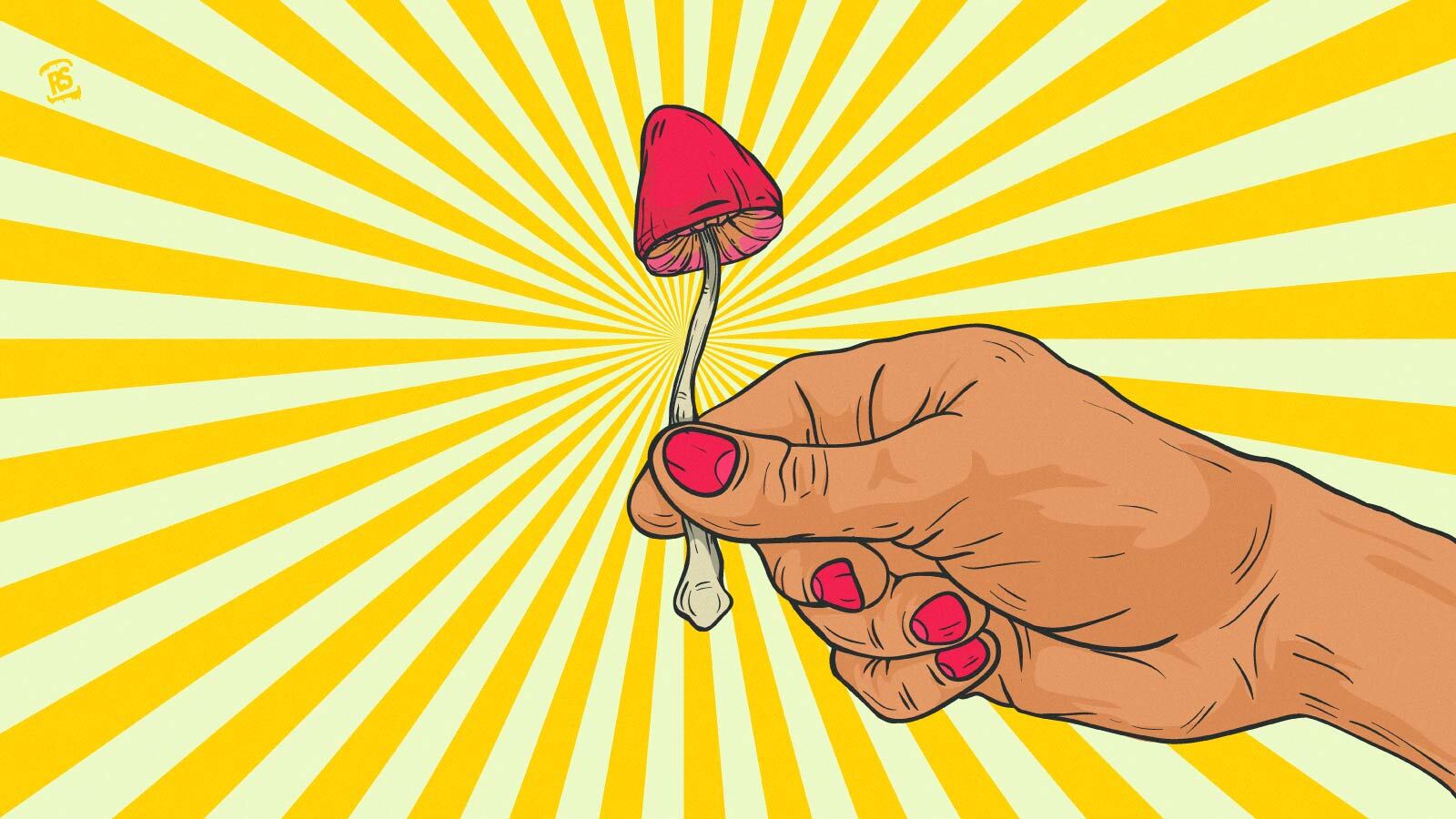Embark on a mind-bending journey as we explore the Stoned Ape Theory, a hypothesis that suggests psychedelic mushrooms played a pivotal role in the evolution of human consciousness. We’ll dive into the origins of this theory, analyze its implications, and hear from some of the greatest minds in the psychedelic realm.
A Trip Down the Evolutionary Rabbit Hole: Origins of the Stoned Ape Theory
The Stoned Ape Theory was first proposed by ethnobotanist and psychedelic advocate Terence McKenna in his 1992 book, Food of the Gods. McKenna posited that the ingestion of psilocybin mushrooms by our early human ancestors led to an acceleration in cognitive development, resulting in the complex language, creativity, and self-awareness that defines the human experience today.
Psilocybin Mushrooms: Nature’s Cognitive Catalyst
As our hominid ancestors roamed the African savannah, they likely encountered and consumed various flora and fauna in their quest for sustenance. Among these, psilocybin-containing mushrooms may have been consumed, leading to transformative psychedelic experiences. According to McKenna, these experiences catalyzed the development of language, art, and religion, allowing early humans to establish complex social structures and explore abstract concepts.
Expanding Minds: The Effects of Psilocybin on the Brain
The Stoned Ape Theory is grounded in the understanding that psilocybin has profound effects on the human brain. Research has shown that this psychedelic compound stimulates the growth of new neural connections, enhances creativity, and fosters introspection, all of which could have contributed to the rapid development of human consciousness.
The Doors of Perception: Quotes from Psychedelic Thought Leaders
Many psychedelic thought leaders have weighed in on the Stoned Ape Theory, providing insight into the potential connection between psychedelics and the evolution of human consciousness.
“Nature is not our enemy, to be raped and conquered. Nature is ourselves, to be cherished and explored.” Terence McKenna
“I think our society would be transformed if every citizen had the right to explore their own consciousness with psychedelics, should they so choose.” Graham Hancock
“Psychedelics, used responsibly and with proper caution, would be for psychiatry what the microscope is for biology and medicine or the telescope is for astronomy.” Rick Doblin, Ph.D.
Digging Deeper: The Controversy and Criticisms Surrounding the Stoned Ape Theory
While the Stoned Ape Theory has captured the imagination of many in the psychedelic community, it is not without its critics. Some argue that there is insufficient evidence to support the claim that psilocybin mushrooms played such a significant role in human evolution. Others point to alternative explanations for the rapid development of human cognition, such as the advent of cooking, which made more nutrients available to the brain.
A Grain of Salt: Taking the Stoned Ape Theory with a Dose of Skepticism
It’s important to approach the Stoned Ape Theory with an open mind, while also considering the limitations of the available evidence. As more research is conducted into the effects of psychedelics on the brain, we may gain a better understanding of the potential role these substances played in our evolutionary journey. In the meantime, the Stoned Ape Theory serves as a thought-provoking exploration of the possible intersections between psychedelics and the development of human consciousness.
The Stoned Ape Theory and Modern Psychedelic Research
The intrigue surrounding the Stoned Ape Theory has undoubtedly contributed to the resurgence of interest in psychedelic research. Today, scientists are uncovering the potential therapeutic applications of psychedelics, including their use in treating mental health disorders like depression, anxiety, and PTSD.
A Psychedelic Renaissance: The Future of Human Consciousness
As we continue to uncover the potential benefits and risks of psychedelics, we may find ourselves on the precipice of a new era in human consciousness. Will the responsible use of these substances lead to a deeper understanding of ourselves and the world around us? Only time will tell.
Conclusion: A Trip Through Time and Consciousness
The Stoned Ape Theory serves as a fascinating exploration of the potential role psychedelics played in the evolution of human consciousness. While the hypothesis remains controversial and its implications debated, it nonetheless inspires us to consider the ways in which our ancestors’ experiences may have shaped our modern minds. As we continue to research and uncover the mysteries of psychedelics, we may find ourselves tapping into the same wellspring of creativity, introspection, and wonder that first propelled our species into the realm of self-awareness.
Join us as we continue to explore the psychedelic landscape, bridging the gap between science and spirituality, and diving deep into the recesses of human consciousness. Stay tuned for more mind-expanding content, and don’t forget to share your thoughts in the comments below. Until next time, fellow travelers, let the cosmic waves guide you on your journey through reality’s infinite sandwich.
















